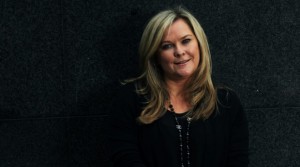Mehr Frauen als IT-Fachkräfte: Andere Länder – gleiche Sorgen

DSDS, Big Brother, NewTopia, Germanys Next Top Model – Wann entdecken die Fernseh-Redakteure endlich auch den feminen Fachkräftemangel in der IT?
Deutschland leistet sich den Papiertiger namens „Digitale Agenda“, aber kaum jemand traut dieser Propaganda-Masche etwas zu. Schüler fordern eine Ausbildung in IT, der Hype-Tsunami um Digitalisierung und Big Date ist in der Diskussion allgegenwärtig und hat seinen Höhepunkt wohl noch nicht erreicht. Besonnene Experten werden nicht müde, auf das Arbeitskräftepotential junger Studentinnen hinzuweisen, die doch eher Informatik als Esoterik studieren sollten. Doch keine Sorge, Deutschland steht mit diesem Mangel nicht allein. Ein Blick über den Tellerrand zeigt auf, dass beispielsweise in Australien ähnliche Sorgen geäußert worden – die Politik mag beruhigt sein: geteiltes Leid ist halbes Leid.
Wenn die Fernseh-Redakteure dieses Landes ihren Blick weg von den bisherigen Inhalten der Tele-Novelas wenden und statt Kochtopf-Schlachten Formate wie „Meine Apps – Deine Apps“ rund um die alltäglichen Probleme der jungen Social-Media-Nutzer entdecken würden, wäre schon viel gewonnen. Und wenn die Problemlösung in Gestalt einer attraktiven, klugen Blondine (Achtung: keine Boolsche Exclusive OR Bedingung) daher kommt, könnte es sogar manche Entscheidung für ein Studienfach beeinflussen.
Yolanda Redrup berichtet in einem Beitrag in der Australien Financial Review, dass weibliche Nachwuchskräfte in der IT auch „Down-under“ fehlen.
A cursory look at the Australian leaders of the world’s biggest tech players paints a picture of an industry well stocked with female talent, but that belies a reality of a broader gender imbalance and Australia’s female tech leaders are calling for education reforms to tackle the divide.

Google, Microsoft, Dell, Intel, Twitter, Spotify, Tata Consultancy Services and Pandora are among the top tech companies helmed by women in Australia. Yet despite this abundance of role models in leadership positions, the sector continues to struggle to attract women to positions lower down the IT foodchain.
Female leaders such as Microsoft Australia managing director Pip Marlow and Intel’s Kate Burleigh say a mind-shift is needed within the education system and changes made to how IT is taught in schools, in order to break down the image of a “geeky” male industry.
The number of men working in IT drastically outweighs the number of women. Australian Bureau of Statistics figures showed that in February, 2013 there were 597,700 ICT workers in the country. Of those, 169,400 were women, just 28.34 per cent of the sector.
Ms Marlow said tech skills needed to be taught as frequently as English and maths in schools.
“It’s a basic skill,” she said.
“If you go to a website and think it looks cool, that’s because an artist created it. We have to reframe the teaching of digital skills to show how it can bring to life all of a person’s passions.”
Lesen Sie hier den kompletten Beitrag in der Australien Financial Review.





